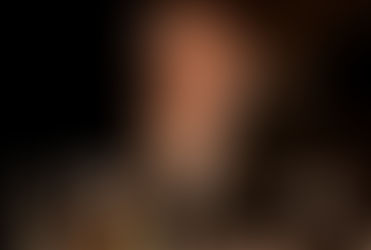Maria Stuarda
- Chris O'Rourke
- Jun 6, 2022
- 4 min read

Tara Erraught and Gemma Ní Bahraini in INO's Maria Stuarda. Image by Pat Redmond.
****
There's serendipity surrounding Irish National Opera's production of Maria Stuarda, coinciding, as it does, with Queen Elizabeth II's Platinum Jubilee. Royalty under the spotlight also informing Donizetti's 1835 opera based on Schiller's 1800 play, with libretto by Giuseppe Bardari, about an imagined encounter between Queen Elizabeth I and her cousin, Mary Stuart. Popularly known as Mary Queen of Scots, who was killed at Elizabeth's behest. Yet INO's focus on royalty today sees its two complex women reduced to cartoon characters. Even as a stunning Tara Erraught lifts the roof, confirming her status as a mezzo-soprano superstar in the making.
Under Tom Creed's direction, a clean minimalism is much in evidence. Indeed, Katie Davenport's DIY set is so scant on spectacle you might think you were at a concert recital. Blocking doesn't help; too many semi-circular, human shells encasing the singing pearl look like an easy fix. Throughout, movement comes in a distant second following an initial lazy flurry. Davenport's empty stage of red, white and black morphed into a press conference prepared with vigorous lacklustre. Supported by Donizetti's opening overture, creating a sense of music as something to be tolerated until the singing starts. And not for the last time. Yet when divine soprano Anna Devin takes to the stage, singing starts majestically.

Anna Devin in INO's Maria Stuarda. Image by Pat Redmond.
If only her Elisabetta was equally as majestic. No tough, independent Queen Bess here, just a petulant Barbie throwing a tantrum afraid of her cousin's former designs on her throne and her lover. A puppet queen plagued by indecision, manipulated by men, agonising over "will I, won't I" when her overriding self-interest clearly means she will. Davenport, channelling her inner Vivienne Westwood, emphasises Elisabetta's triteness and need to be liked. From a Union Jack dress, to an intern by the photocopier look, to shiny black trousers, top hat and a whip, Devin struts like an understudy in a Spice Girls tribute band, her jittery nervousness broken by moments of self-willed resolve. Which you don't always dramatically buy, given that Elisabetta lacks real conviction when it comes to owning her own power.
A danger inherent in modern re-imaginings is that they can interpret poorly the relationship between libretto, voice and music. Creating a disconnect between drama and emotion and the sounds expressing them. With Irish National Opera Orchestra, under the studious conducting of Fergus Shiel, music finds harmony with Donizetti's lush Romanticism, yet not everything is as comfortable dealing with it. Key character decisions, like Elisabetta, don't always fit dramatically or emotionally. Even as others astonish. Baritone Giorgio Caoduro as Guglielmo gives a commanding performance. Bass, Callum Thorpe's Lombard is utterly marvellous, his singing a thing of depth and beauty. Showcasing a dramatic emotional quality that, when matched with Erraught during a sublime duet raises the hairs on your neck. Less so tenor Arthur Espiritu as the lovesick Leicester, for whom falling to his knees in despair is the height of his heroic stature. Scrambling about like an abandoned child, a diminishment in vocal power is sensed when next to Erraught or Thorpe, the black band around his diaphragm doing him no visual favours. Even as his tone is simply gorgeous.

INO's Maria Stuarda. Image by Pat Redmond.
The arrival of the eponymous Maria poses its own challenges. Like a Pre-Raphaelite mother earth, with all the flower filled innocence of Snow White, Erraught has an uphill struggle to make the cartoonish Maria credible. Yet this she does, and then some, with some powerful singing and invested acting. Though mezzo-soprano Gemma Ní Bahraini's Anna has arguably the hardest role of all, spending long, inactive periods looking awkward and irrelevant while trying hard not to look awkward and irrelevant. Yet her singing is worth the waiting. As Maria and Elisabetta face off during their imagined meeting, a lone Maria kneels humbly as Elisabetta, accompanied by soldiers suggesting off-white Minions playing Beefeaters, or unjaundiced Oompa Loompas, struts and frets her nervousness, Devin shining in a hugely impressive sequence. When Maria loses out to some self-righteous indignation, there's only one place things can go in the second half. Narratively, nowhere of real surprise. Musically, towards some of the most sublime bel canto singing to be heard anywhere.

Anna Devin, Tara Erraught and Giorgio Caoduro in INO's Maria Stuarda. Image by Pat Redmond.
INO's posters are somewhat misleading. Maria Stuarda is no costume drama. It takes a historical work, twists it this way and that, in an attempt to reveal modern ways of looking. Ironically, when closest to Donizetti's original dramatic emotion is when it proves most successful. If not everything is admirable, everything is to be admired. From staging, to Sinead McKenna's lights, to costumes, to characters, there's bravery in evidence; a trying of new things. Most admirable of all is Tara Erraught who is simply…just go, watch, listen, and be amazed.
Maria Stuarda, by Gaetano Donizetti, libretto by Giuseppe Bardari, presented by Irish National Opera and directed by Tom Creed, runs at The Gaiety Theatre before embarking on a national tour.
Dublin (Gaiety Theatre: 5, 7, 9, 11 June)
Cork (Cork Opera House: 15 and 16 June)
Wexford (National Opera House: 19 June)
Limerick (University Concert Hall: 22 June, concert performance)
For more information, visit Irish National Opera or respective venues.



















